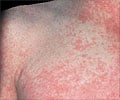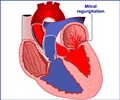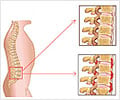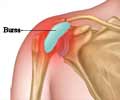An Israeli rheumatologist has explained in his report that a group of common inflammatory rheumatic disorders could have its roots in the environment.
An Israeli rheumatologist has explained in his report that a group of common inflammatory rheumatic disorders could have its roots in the environment.
The paper by Prof. Michael Ehrenfeld of Tel Aviv University's Sackler School of Medicine has appeared in Autoimmune Reviews.Prof. Ehrenfeld has also studied how the dry-eye and mouth disease "Sjvgren's syndrome" can be caused by environmental influences.
He said: "The onset of autoimmune diseases is a mixture of genetics, which you can't change, and environmental factors, which in some cases you can."
He explained that pollution may trigger various autoimmune disorders and "there are some environmental factors harder to avoid. For example, reactive arthritis is caused by a severe gastro-intestinal, urinary or sexual infection in some people."
Rheumatoid arthritis, an inflammatory autoimmune disease, leads to a condition wherein the body's own immune system attacks its joints, causing pain, deformities and a considerable loss of mobility.
According to Prof. Ehrenfeld, one major cause of arthritis is extreme stress, while some medications, such as the birth control pills, might also be linked to the onset of lupus.
"Obviously those people whose family members share a history of rheumatoid arthritis, or other autoimmune diseases including thyroid problems, should be more vigilant, because their chances are higher."
Prof. Ehrenfeld also stated that hairspray and lipstick could be occasional triggers.
He said: "Most people think arthritis has to do with old age...This is false. There is only one major type of arthritis in older people: osteoarthritis, which is brought on by degenerative changes in the body. What you see in older adults is usually a non-inflammatory and non-autoimmune type of arthritis."
"Most of the other kinds of arthritis we see in the clinic, the debilitating and inflammatory types, usually occur in young women between the ages of 20 and 40...We hope that our research will lessen the occurrence and onset of these painful disorders," Prof. Ehrenfeld added.
Source-ANI
SAV
 MEDINDIA
MEDINDIA




 Email
Email






